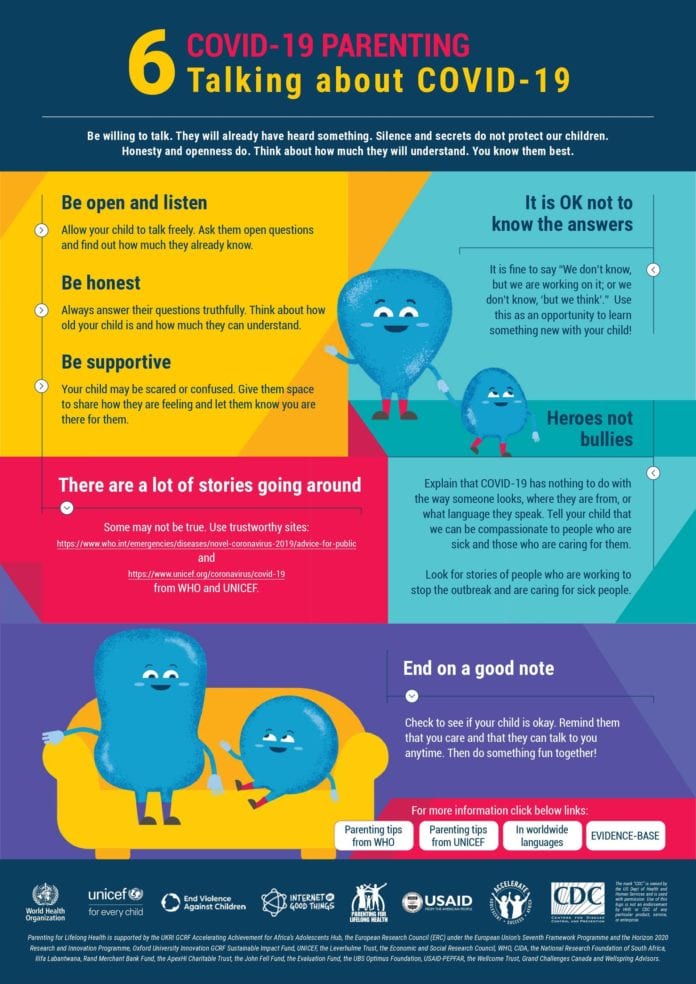Just last week, we received the final confirmation that school would not reconvene this year. And it looks like our schedules and our children’s routines will not return to normal any time soon. That said, it is more important than ever to keep an open line of communication between yourself and your children. This is equally true whether they are 18 months or 18 years old.
As discussed in my last article, the World Health Organization (WHO) has an excellent website that discusses positive parenting during this time of added stressors. One of their one-page vignettes includes suggestions on how to talk to your children about COVID-19.
There is also an additional link on the same WHO webpage to a digital book called “My Hero is You.” It is written for children around the world, ages 6-11, and it addresses many of the concerns about the coronavirus in a way that can be readily understood by children of this age group. It could also be a good opener for your children to ask you questions about COVID-19 and the changes that have happened in their lives.
In addition, the National Association of School Psychologists and the National Association of School nurses put out a two-page letter suggesting how to talk to your children about COVID-19.
It suggests the following:
- Acknowledging some level of concern, without panicking, is essential. Parents should, however, reassure children that health and school officials are working hard to ensure that people throughout the country stay healthy.
- Teaching children positive, preventive measures and talking with them about their fears gives them some sense of control and helps reduce anxiety. Children need factual, age-appropriate information about the risk associated with the disease and concrete instructions about how to avoid infection.
- Remaining calm and reassuring reminds them that you, their teachers and their principal are there to keep them safe and healthy.
- Making yourself available and knowing that they may need extra attention from you during this time creates a calm atmosphere for them.
- Being aware that when tensions are high, there is a temptation to blame others. It is important to avoid stereotyping or blaming any one group of people for being responsible for the virus.
- Being honest and accurate. If no one is talking to your children, they often imagine situations are far worse than they really are. Do not ignore their concerns; however, explain that there are still no confirmed cases of the virus in Cordova. Also, explain that, if the virus does come to Cordova, there are doctors and nurses who can take care of the sick people. It would also be helpful to explain that it is rare for children to get extremely sick from the virus and most likely they would experience something like a cold, very similar to what they have had in the past.
Remember, children will follow your lead. It is your opportunity to set an example for social distancing, wearing a mask or face-covering in public, and washing hands and surfaces that are frequently touched in your home. For the complete parent resource from the NASP on how to talk your children about COVID-19, go to bit.ly/3ccOefd.





